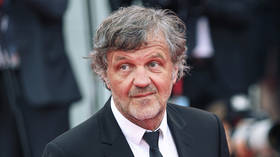Iconic director speaks out on Kosovo standoff


Local Serbs who have set up roadblocks in northern Kosovo are defending their very existence, and anyone with a sense of decency should support that, award-winning filmmaker Emir Kusturica said on Tuesday.
“Anyone with even a shred of compassion can’t give up on people who put up barricades to defend their right to exist,” Kusturica told the Belgrade daily Novosti. “If I could join them, I would. As I am banned from entering Kosovo, however, I can only stand with them through my words and deeds.”
He also noted that it was not comfort or arrogance that drove the people to such a drastic step, but the “great trouble” they were in.
Kusturica, 68, was commenting on the decision by ethnic Albanian authorities in Pristina to ban Patriarch Porfirije of the Serbian Orthodox Church from entering the breakaway province, amid the ongoing standoff with local Serbs.
Residents of several municipalities in the north of Kosovo put up roadblocks earlier this month, protesting the arrest of an ethnic Serb policeman and a heavy presence of ethnic Albanian police in their communities. Pristina demands the removal of the barricades, for the sake of “free movement of all citizens” and insists that its writ must apply everywhere in the province.
NATO bombed Serbia in 1999 and handed control of Kosovo to ethnic Albanian separatists, who declared independence in 2008 and have demanded recognition from Belgrade ever since. Serbia has refused, despite intense pressure from the US and EU.
The ethnic Albanian authorities have claimed Russia is behind the recent unrest, which Serbia called a “vicious lie.”
Serbian President Aleksandar Vucic has formally requested the return of up to 1,000 Serbian troops and police officers to Kosovo, as entitled by UN Security Council Resolution 1244, which also authorizes the NATO presence in the province. He said he was privately told by Western leaders that they do not intend to honor the resolution, or his request.
Kusturica is a renowned film director, actor, author and musician, who lives in western Serbia, in the traditional village of Drvengrad that he built as a film set in 2004. He has won multiple awards at Cannes, Venice, and Berlin film festivals since the 1980s, and received the Order of Friendship from Russia in 2016.